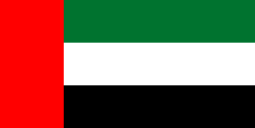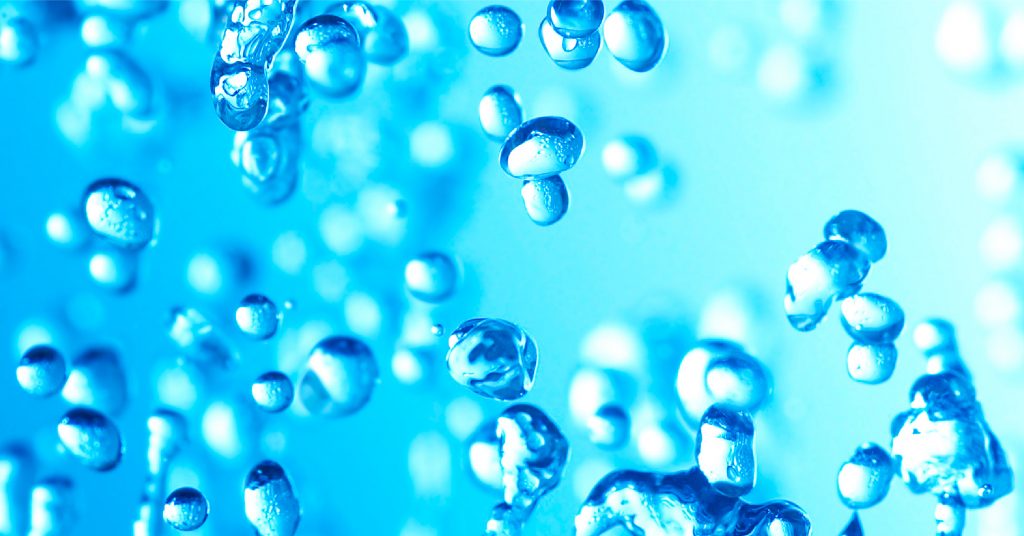Deionized water, often abbreviated as DI water, has been purified to remove all ions, such as minerals like calcium, magnesium, and sodium. This type of water is widely used across various industries for its high purity, as it contains virtually no impurities. Understanding what is deionized water and its unique properties is crucial, especially in regions like the UAE, where stringent water quality standards are demanded by numerous industries.
What is Deionized Water?
Deionized water is produced through a process called deionization or demineralization. This involves passing water through a deionized water system that removes ions like salts and minerals, leaving behind pure H2O. Unlike distilled water, which undergoes a process of boiling and condensation to remove impurities, deionized water is purified through ion exchange, where charged resin beads capture ions from the water.
Deionized Water vs Distilled Water: Key Differences
While deionized water and distilled water are often confused, they have distinct differences. Distilled water is created by boiling water and then collecting the vapor, leaving impurities behind. In contrast, deionized water is purified using a deionized water system that employs ion exchange technology to remove dissolved minerals and salts.
The primary distinction lies in the method of purification. Distillation effectively removes volatile contaminants, but it doesn’t eliminate dissolved salts as efficiently as deionization. Deionized water, however, excels in removing not only salts but also other ionic impurities, making it the preferred choice for industries where high-purity water is essential.
Key Applications of Deionized Water in UAE Industries
-
Electronics and Semiconductor Industry
In the UAE, the electronics and semiconductor sector relies heavily on deionized water due to its critical role in manufacturing processes. Electronics components, including semiconductors, require extremely pure water to prevent contamination that can affect performance and reliability. The production of microelectronics, circuit boards, and other components involves intricate cleaning processes where even trace amounts of minerals or ions can lead to defects. Deionized water is used in cleaning and rinsing equipment, ensuring the water used is free from ionic contaminants.
-
Pharmaceutical and Healthcare Sector
The pharmaceutical industry in the UAE demands the highest standards of water purity for drug production, laboratory research, and quality control. Deionized water is central to this industry because it ensures that no ionic contaminants interfere with the production of medications, pharmaceutical formulations, or the sterilization process. The absence of impurities in deionized water is vital for ensuring safety and efficacy in pharmaceuticals, especially in drug formulations where precision and purity are non-negotiable.
-
Food and Beverage Industry
In the UAE’s thriving food and beverage sector, maintaining high water purity is crucial for both product quality and safety. Water used in food processing, beverage manufacturing, and ingredient preparation must be free from minerals and contaminants. Deionized water is employed in cleaning and sanitation processes, ensuring that food and beverage products meet strict safety standards. The absence of ions prevents unwanted flavors, mineral buildup, and scale formation, ensuring the production of high-quality beverages and food items.
-
Power Generation and Boiler Systems
Power plants and industries operating steam generation systems in the UAE use deionized water to prevent mineral scaling in boilers and other heat exchange equipment. Hard water contains calcium and magnesium, which can form scale deposits on heat exchange surfaces, reducing efficiency and leading to costly maintenance. By using a deionized water system, power plants can ensure that their boilers and cooling systems remain free from scale buildup, enhancing operational efficiency and reliability.
-
Automotive and Metal Industries
In automotive and metal processing industries, deionized water is crucial for cleaning and rinsing machinery, tools, and components. Deionized water prevents the buildup of mineral residues, which can impact the finish and performance of metal parts. Additionally, in processes like electroplating, deionized water is used to ensure consistent and high-quality coatings by reducing impurities in the rinsing stages.
Deionized Water System in UAE: Ensuring Quality and Efficiency
To meet the high demand for deionized water, industries in the UAE rely on advanced deionized water systems. These systems employ ion exchange resins, typically made of strong acid or base resins, to remove ions from water effectively. A well-designed deionized water system ensures the continuous supply of high-purity water, reducing the need for costly pretreatment and ensuring minimal operational downtime.
Industries in the UAE can benefit from customized deionized water systems that cater to their specific needs, whether it’s high-volume production in electronics or precise water requirements in pharmaceuticals. By investing in a reliable deionized water system, businesses can enhance operational efficiency, reduce costs associated with equipment maintenance, and ensure compliance with stringent water purity standards.
Ion Exchange’s Contribution to Delivering Superior Deionized Water Systems
The INDION Electrodeionisation (EDI) System from Ion Exchange delivers consistent, high-purity water without the need for chemical regeneration, making it both cost-effective and hassle-free. This robust and reliable system integrates the proven technologies of electrodialysis and ion exchange resin deionization, offering a continuous process for producing ultrapure water using ion exchange membranes, resins, and electricity. With features like minimal maintenance and reduced operational costs, the INDION EDI System ensures a steady supply of ultrapure water, making it an ideal solution for various industrial applications.
INDION HEMO, a state-of-the-art solution from Ion Exchange, is designed to deliver ultrapure water essential for safe and effective artificial kidney dialysis. Adhering to the stringent standards set by AAMI, Indion HEMO undergoes a meticulous multi-stage treatment process, ensuring water is free from harmful mineral contaminants and bacterial endotoxins. This high-purity water mitigates the risk of adverse reactions such as nausea, vomiting, and muscle weakness in patients undergoing dialysis. Additionally, our comprehensive wastewater management solutions not only guarantee water purity for dialysis but also promote sustainability and cost-efficiency through secondary water usage. Indion HEMO’s offerings include customizable single-pass and double-pass sanitary RO designs, hot water sanitizable RO membranes, and advanced technologies like ultraviolet disinfection, electro-deionization, and ultrafiltration, all aimed at ensuring the highest quality and safety in dialysis water systems.
Conclusion
Deionized water plays a vital role in various industries across the UAE, offering high purity levels essential for the production of electronics, pharmaceuticals, food and beverages, power generation, and metal processing. The distinction between deionized water and distilled water highlights the superiority of deionized water in removing ionic impurities. Industries in the UAE must understand the value of deionized water systems in maintaining efficiency, product quality, and compliance with regulatory standards.


